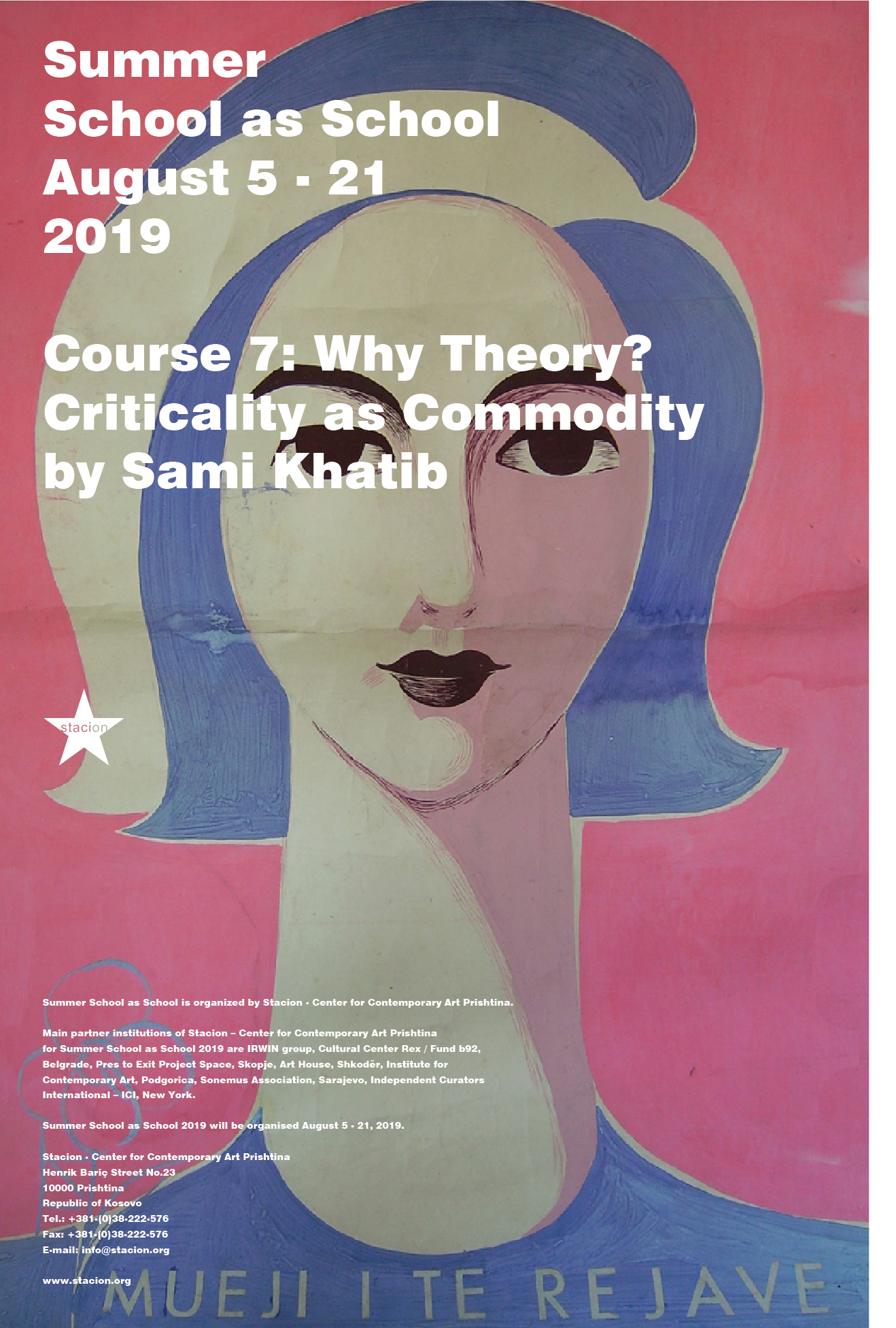
Course 7: Why Theory? Criticality as commodity
by Sami Khatib
12 – 17 August, 2019
Course Description
In the presentist now, the term "critical theory” has almost become a brand name covering various trends and disciplines within the social sciences, political economy, arts and humanities. In a more specific historical sense, critical theory is used as an umbrella term for interdisciplinary schools of modern continental thought, engaging with or departing from the three “critical” discourses of Marx, Nietzsche and Freud. Combining knowledges from different disciplines, classic critical theory designates a self-reflexive mode of research, inquiry and writing that fundamentally differs from applied ‘positive sciences’. The subject of Critical Theory takes part in the constitution of her object of critique and hence method and subject matter are inherently intertwined. With the postmodern turn of Critical Theory, however, critique has been extracted from its relational network between subject, object and method, and gradually transformed into the more amorphous term “criticality”, focusing on the fluid act, agency and performativity of critique itself. In this way, criticality as distinct practice becomes a mobile, disposable practice, which can be attached to the “critical” attitude of the neoliberal self (as in self-reflective techniques of self-improvement and self-care) and produced as distinct trademark lending artworks or artistic texts their “critical” cachet. With the growing interest in and overproduction of theory within the art world, theory and contemporary art converge in the attempt to show, display and exhibit a stance called criticality. One may even state that this convergence constitutes the very field of contemporary art. And if, as Boris Groys rightly noted, “art functions in the context of the art market, and every work of art is a commodity”, criticality has become a commodity, too.
Departing from the deadlock of critique in the age of its neoliberal reproducibility as criticality, the course recalls Michel Foucault’s famous question “What is Critique” (1978) and traces critical theory back to four interrelated fields: (1) the concept of “Kritik” as developed by Kant and subsequently taken up by German Romanticism and its concept of art criticism; (2) the “critical” discourses of Marx, Nietzsche and Freud; (3) Frankfurt School Critical Theory and beyond and (4) art, criticality and the cultural logic of neoliberal capitalism.
Biography
Sami Khatib is a cultural theorist and philosopher based in Berlin. He is a founding member of the Beirut Institute for Critical Analysis and Research (BICAR). He taught and engaged in research at Freie Universität Berlin, Jan van Eyck Academie Maastricht, American University of Beirut and Academy of Fine Art Vienna. Currently, he is a postdoctoral researcher at Leuphana Universität Lüneburg. His main interests are in critical theory and aesthetic theory. For recent publications see: https://fu-berlin.academia.edu/SamiKhatib
Participation
10 participants will be selected to participate in this course. Eligible participants must read the Terms, fill out the application form, upload the required documents and submit the application form. Incomplete applications will not be considered.
Scholarships are available for participants from Kosovo.
A limited number of scholarships, that cover the participation fee, are available for international participants.